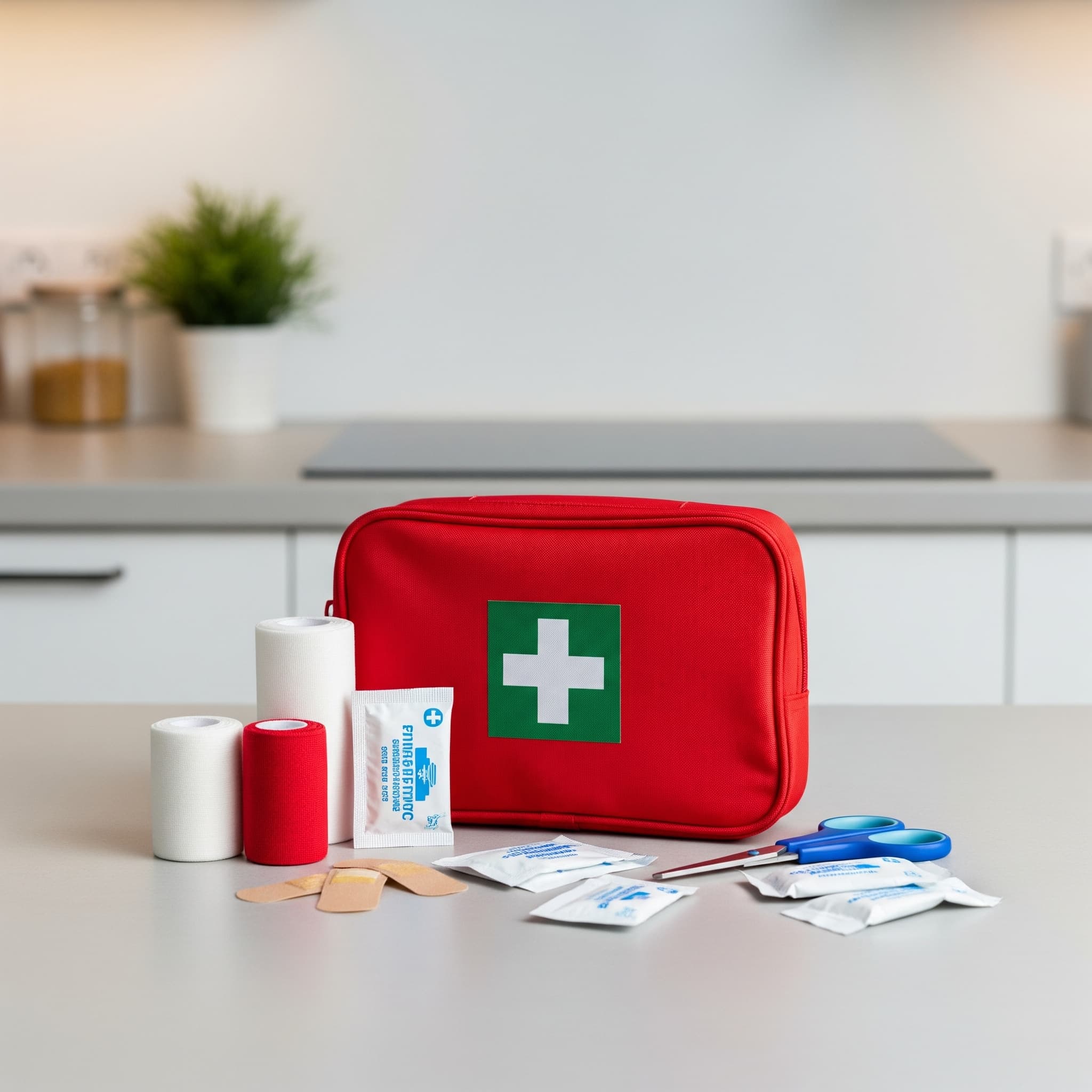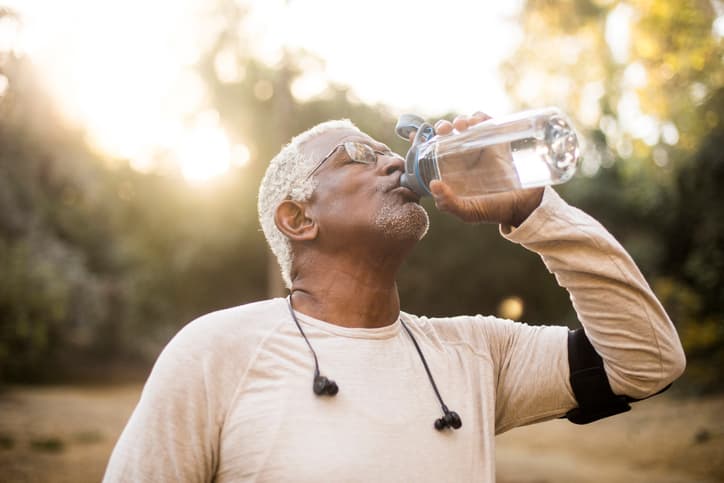Understanding the BE FAST warning signs of stroke

Written by Chad Birt on Tue May 10 2022.

It's a beautiful Sunday morning and you're preparing breakfast. All of a sudden, your care recipient says something, but the words that come out of their mouth are slurred and don't make any sense. You also notice that one side of their face is drooping.
While you might attribute these unusual symptoms to old age or an underlying health problem, they're telltale signs of a medical emergency called a stroke. Since May is Stroke Awareness Month, we're educating family caregivers on how to identify stroke symptoms. Keep reading to learn more!
What is a stroke?
A stroke is a potentially life-threatening emergency that occurs when blood flow to a specific part of the brain is cut off or reduced. That prevents oxygen and nutrients from reaching the brain, causing cell death and ultimately, brain damage.
Up to 795,000 Americans experience a stroke each year. Though there's no way to prevent them entirely, there are steps you can take to reduce complications like hospitalization and premature death.
What can family caregivers do to prevent the worse outcomes of a stroke?
One of the best things a family caregiver can do for their loved one is research the signs and symptoms of a stroke.
Sheryl Martin-Schild, MD, Ph.D., LERN Stroke Medical Director and Medical Director of Neurology & Stroke for the New Orleans East Hospital and Touro Infirmary, suggests familiarizing yourself with the BE FAST warning signs.
"BE FAST expands on the American Heart Association's acronym F.A.S.T.," said Dr. Martin-Schild. "Stroke can happen to anyone, of any age, at any time. That's why it's important for everyone to learn and understand the BE FAST signs."
According to Dr. Martin-Schild, BE FAST stands for:
Balance – Sudden loss of balance;
Eyes – Vision changes or loss of vision in one or both eyes;
Face – Facial drooping, severe headache;
Arm – Arm or leg weakness or numbness;
Speech – Slurred speech, trouble speaking, or seems confused;
Time – It’s time to call 911 immediately.
"If you see or experience a sudden onset of any of these symptoms, it's important to seek immediate medical attention, Dr. Martin-Schild said.
Why is it so important to recognize a stroke early on?
It's crucial to identify a stroke early on because the sooner your loved one receives treatment, the less likely they are to experience disability and complications.
"There's a highly effective treatment to reduce the disability resulting from a stroke," said Dr. Martin-Schild. "But it must be given soon after onset to have the greatest chance of success."
The longer you wait to visit the doctor, the more likely you are to experience life-threatening and/or long-term complications.
Are there certain health problems that increase the risk of a stroke?
Strokes affect people of all ages, races, and genders, but there are health problems that may increase your care recipient's risk.
"High blood pressure is the #1 risk factor for stroke," said Dr. Martin-Schild. "About half of all strokes can be prevented through control of high blood pressure.
Other common chronic conditions which contribute to stroke include diabetes, high cholesterol, heart disease, obstructive sleep apnea, and alcoholism."
Fortunately, there are things you can do to make a difference.
"Each of the above conditions is modifiable, meaning the contribution to stroke risk can be lowered by treatment of the condition," Dr. Martin-Schild said.
"It's important to live your life prepared and not scared. Being prepared means working with [you or your care recipient's doctors] and doing everything you can to help reduce the risk of a stroke, which usually means taking medications as directed, exercising, and following a healthy diet, such as the Mediterranean diet."
It's also crucial to check in with your feelings and outlook.
"For both caregivers and those they care for, mental health is very important for the prevention of heart attack and stroke. Depression and anxiety are linked with increased risk," said Dr. Martin-Schild.
"Stress increases the risk as it often leads to elevated blood pressure and glucose, can inspire arrhythmia, and contributes to poor decisions in diet."
As a result, Dr. Martin-Schild suggests investing in stress reduction activities, like yoga, meditation, or counseling.
When should I seek medical help for a stroke?
If you or your care recipient experience any of the symptoms in the BE FAST acronym, call an ambulance or visit your nearest emergency room right away. That rule applies even if the symptoms are mild.
Samantha Brandon Boartfield, a registered pharmacist with experience managing anticoagulants (to prevent patients from having strokes), emphasizes the importance of listening to your body.
"I've seen so many patients brush off the symptoms because often, they don't seem life-threatening at the moment," said Brandon. "Don't brush them off. It's better to have a wasted afternoon in the ER than it is to not catch a stroke on time."
For additional information about strokes and stroke prevention, check out the following links:
We hope you finished this article with a better understanding of strokes and stroke prevention.
If you're just entering the role of a family caregiver, we encourage you to visit our Caregiving Essentials Collection here. It has everything you need to provide high-quality care from the comfort of home.
As always, if you have any questions or need help, reach out to our Care Specialists at any time. Send an email to support@carewell.com or call (800) 696-CARE during normal business hours.
Other Articles You May Like

Best Products to Include in a Caregiver's First Aid Kit of 2025
You have many jobs as a caregiver, but one of the most important is keeping your loved one safe, healthy, and comfortable at all times. If your care recipient hurts themselves and requires medical help, you can minimize complications like excess bleeding until you make it to an urgent care facility or the emergency room.
Complete your first aid kit. >
6 Simple Tips for Heat Stroke Prevention
The summer months increase the risk of heat-related illness. Follow these tips to prevent heat stroke and keep your senior healthy all season long!
Read More >
Chad Birt is a freelance medical writer who resides in Astoria, Oregon. When he isn't behind a keyboard, you can find him hiking, camping, or birdwatching with his wife Ella and their two dogs, Diane and Thoreau.